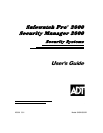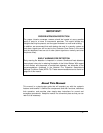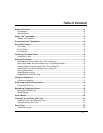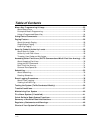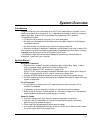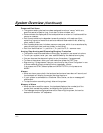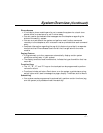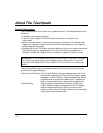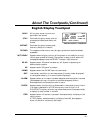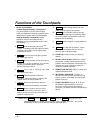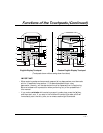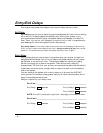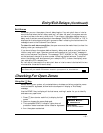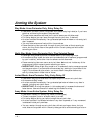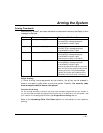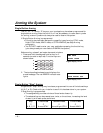
– 5 –
6\VWHP2YHUYLHZ
,QWURGXFWLRQ
Congratulations on your ownership of an ADT Partitioned Security System. You've
made a wise decision in choosing it, for it represents the latest in security protection
technology today, and millions of premises are protected by ADT systems.
This system provides:
•
Three forms of protection: burglary, fire* and emergency.
•
At least one touchpad which provides control of system operation and displays
the system’s status
•
Various sensors for perimeter and interior burglary protection
•
Smoke or combustion detectors* designed to provide early warning in case of fire.
Your system may also have been programmed to automatically send alarm or status
messages over the phone lines to a Customer Care Center.
* Commercial installations and some residential systems may not include fire
protection – check with your installer.
6\VWHP%DVLFV
Burglary Protection
•
There are four modes of burglary protection: Stay, Night-Stay, Away, Instant.
STAY: arms perimeter zones only and entry delay is on
INSTANT: same as STAY, except entry delay is off
NIGHT-STAY: arms perimeter zones and selected interior zones; entry delay on
AWAY: arms perimeter and all interior zones, entry delay is on
•
You can BYPASS selected zones while leaving the rest of the system armed.
•
CHIME mode alerts you to the opening of protected doors and windows while the
system is disarmed.
Fire Protection
•
Fire protection is always active (if installed) and an alarm sounds if a fire
condition is detected
•
If necessary, you can manually initiate a fire alarm using the touchpad.
•
Refer to the Fire Alarm System section for information regarding fire protection,
smoke detectors and planning emergency exit routes.
Security Codes
•
You were assigned a 4-digit security code during system installation.
•
Use your security code when arming and disarming the system, and when
performing other system functions.
•
Other users can be assigned different security codes.
•
User codes can be assigned different authority levels, which define which system
functions a particular user can perform.



